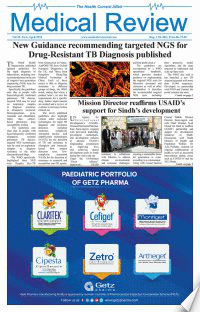By Aida Girma
Breastfeeding is one of the most important public health interventions that we know of. It’s perfect; entirely natural, 100% nutritionally balanced and completely cost effective.
Commemorating the World Breastfeeding Week, we have some achievements to celebrate and some challenges to collectively address.
First, let me offer my congratulations to Pakistan for its focus and determination to change what was rightly seen as a woeful situation. All levels of government leapt into action. With UNICEF’s support, oversight bodies called Infant Feeding Boards were re-instated. These boards made up of technical experts, at provincial and national levels, are responsible for ensuring that measures are taken to enforce protection of breastfeeding.
At federal level, the Ministry of National Health Services Regulation and Coordination (MNHSR&C) initiated breastfeeding awareness activities with a variety of radio and TV spots. Nutrition Cells in Departments of Health, as well as Planning Department multi sectoral teams, worked to develop province-specific activities including awareness campaigns, which can already be seen paying dividends. Again, UNICEF was pleased to support in the development of communications materials where required.
It is clear and scientifically undisputed that inadequate breastfeeding – either not initiating feeding in the first hour of birth, or not exclusively breastfeeding, which means feeding only mother’s milk and not even water, for the first six months of life – will affect both health and well-being and even in some cases, the very life of the child.
Within the first few days, a breastfed child is provided with critical immunity, which provides protection against a host of diseases. A breastfed child is less likely to be obese, have diabetes or asthma in later life. A mother who has breastfed is less likely to get breast cancer. Research continues to uncover more and more reasons why we need to encourage and protect breastfeeding.
While less than four in ten babies are exclusively breastfed on average, a South Asia regional low point, for the first-time tracking studies are showing improvements in rates of exclusive breastfeeding. Studies in Punjab and KP particularly have shown improvements.
UNICEF worked with the government to develop and roll out education workshops for Pediatricians and Obstetricians. We have been delighted to work with their National and Provincial Associations, and the energy and enthusiasm we witnessed, is certainly one of the reasons we are now seeing positive changes.
Workplace laws are being put in place to protect working women who want to breastfeed. Maternity leave laws are changing.
While more needs to be done in awareness, education, legislation and enforcement, let us celebrate these successes.
What now remains in terms of challenges?
Despite these welcome signs of progress, we need to continue educating physicians, lady health workers, nurses, community midwives and others on clear benefits of breastfeeding and the legal environment designed to support breastfeeding. Bottle-feeding with formula milk is vastly over-practiced in Pakistan as 40% of children under six months of age are fed formula. We must convince every doctor, child specialist, pediatrician and gynecologist to stop prescribing formulas, and encourage breastfeeding. We must get better at providing lactation support to mothers who face any difficulty in breastfeeding their babies.
Continuing our efforts, UNICEF is working closely with MNHSR&C and Provincial Departments of Health to update the existing legislation reflecting the most recent World Health Assembly recommendations. This will further limit the ability of manufacturers to market products for infants, always illegal under the current law, to include children up to three years of age.
We need to enhance breastfeeding support at facilities and places where women deliver their children so that the rates of breastfeeding a newborn within the first hour post-delivery can be improved. In Pakistan, half of all women deliver in health facilities and this number is rising. Both UNICEF and WHO are supporting measures that enhance support for breastfeeding in hospitals. For women, who deliver at home, we will continue to support the training of community workers to assist them and their families during pre-and post birth period.
UNICEF is working with Pakistan to improve the health and well-being of its children. We are pleased to celebrate the early successes in improving breastfeeding and are here to support achievement of goals that that Pakistan has set for ensuring the brightest possible future for its children.


